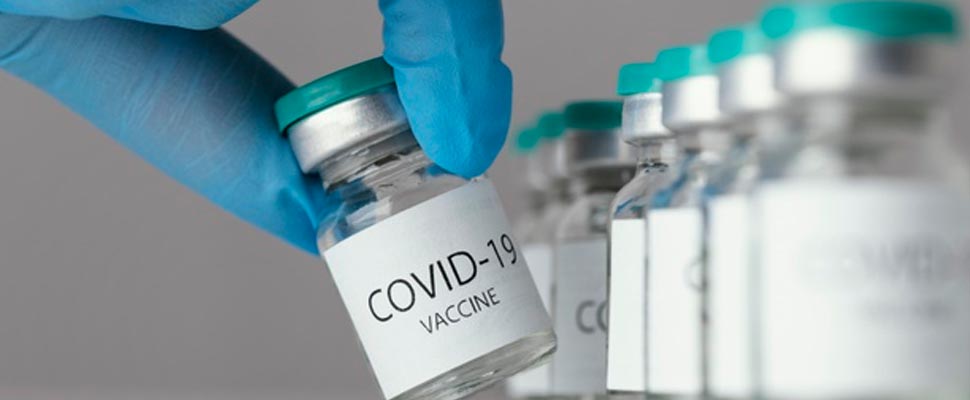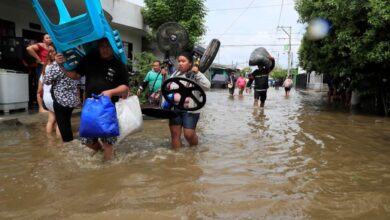Opinion: “Vaccivacation” in the United States
Several Latinos from high socioeconomic strata are traveling to the United States to get vaccinated earlier.

In recent weeks ‘bovine tourism’ has become popular. Photo: Freepik
LatinAmerican Post | Santiago Gómez Hernández
Listen to this article
Leer en español: Opinion: “Vaccination” in the United States
I still remember when a few years ago in a class at the university we read the book What Money Cannot Buy by Michael Sandel. The author raised the premise that today in a world that revolves around money and silver, there are very few things that money cannot buy.
You can even buy love and friends. You can rent couples and/or friends in different parts of the world. It is true that the feeling is not real, but you can do whatever you want with that person, dates, take them to events, introduce them to your family.
Regarding time, you will not be able to buy more time, but money allows you to travel by helicopter and save you the traffic of a city. So you have more time to spend on whatever you want. Or you can pay taxes to use your vehicle longer or on exclusive streets that are faster.
And as for health … well, we all know that the money you have will depend a lot on the service they provide and the quality and possibly the success rate of your procedure.
Well, now another thing to the list of what you can buy are vaccines. Most of the countries in the world decided to buy vaccines from the public sector and themselves, then to initiate vaccination programs. However, with the exception of Chile, in Latin America, the quantity of vaccines is scarce, due to the same global market, and being able to pay for vaccines privately comes into consideration.
Turismo 'vacuna': la ruta hacia el 'american dream', según peruanos que viajaron y se vacunaron: Esta semana circularon unos audios en cadenas de Whatsapp que 'alertaban' sobre posibilidades y riesgos de viajar a Estados unidos a vacunarse contra el .. https://t.co/CgwlVCbWtu
— Perú News (@PeruNews) April 6, 2021
Also read: How will the absence of opposition influence Nayib Bukele's politics?
For a few weeks, I have heard that several Mexicans are traveling by proximity and ease to the United States in order to obtain the Johnson & Johnson vaccine in a single dose. It seemed a bit anecdotal to me, however, and some acquaintances of mine in Colombia and Mexico have already confirmed that they or relatives will be traveling to the US to get the vaccine.
Now, this creates an ethical dilemma. It is ethical that money allows the people who have the money to get vaccinated and not those who need it most? Among the travelers are young people, which contrasts with the absence of vaccines in people over 50 or 60 years of age in most Latin countries who are at risk of infection.
However, technically they are not skipping the line in our countries. Our older adults still have their quota and it will depend on the efficiency of each Government to get them vaccinated in a timely manner.
In addition, the more people get vaccinated, both abroad and internally, the faster the reopening and reduction of the medical occupation that worries doctors and governments so much.
#VacunasCOVID Turismo de "vacunación" en Estados Unidos.
Compatriotas viajan a ese país con el fin de recibir la vacuna para la COVID-19.#MóvilABC – @sergivaldez #ABCTVPy – https://t.co/M0oxvTXRgx#ABCNoticiasCentral pic.twitter.com/Nir1vMC5iZ
— ABC TV Paraguay (@ABCTVpy) April 7, 2021
It will not be fair, but if people manage to get vaccinated in the United States (which has been in charge of hoarding vaccines), then we will get out of this faster. In addition, in this way, vaccines in Latin America may be applied more than anything to the population that does not have the ability to travel and acquire them abroad.
Another dilemma is whether it is beneficial to Americans for a large group of Latinos to travel to get vaccinated. Well, apparently the vaccination there goes so fast, that there would not be much problem and quite possibly, most of those who need to be vaccinated, have already received, at least, the first dose.





